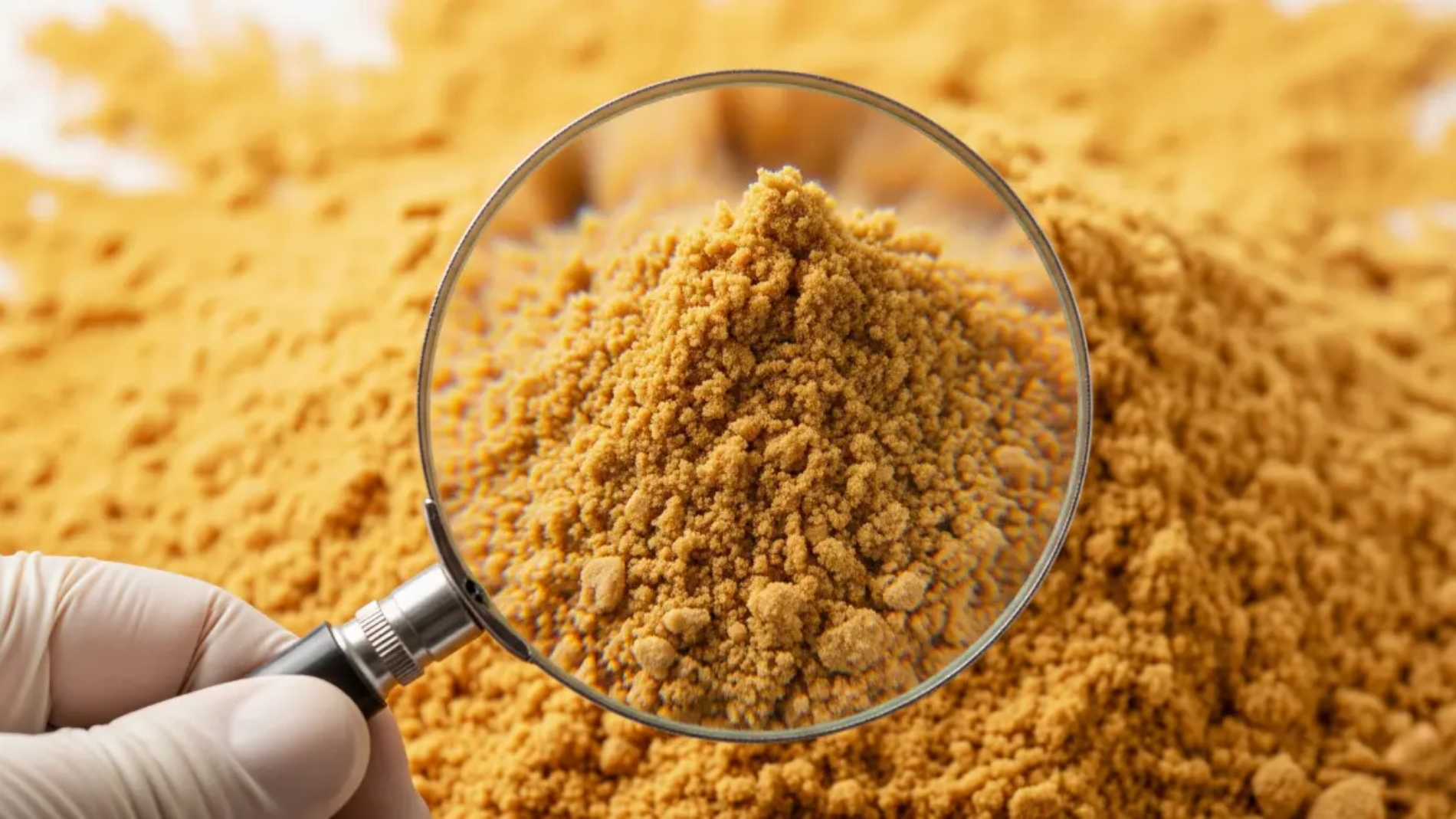In the global food market, authenticity and quality are paramount. For importers and distributors, sourcing jaggery powder from india presents a significant opportunity to cater to the growing demand for natural, healthy sweeteners. However, the success of your venture hinges on one critical factor: the ability to consistently source high-purity, premium-quality products. Not all jaggery powder is created equal, and verifying its quality is essential for maintaining your brand’s reputation, satisfying customers, and ensuring regulatory compliance.
This guide provides a comprehensive framework for buyers to assess and verify the quality of jaggery powder, ensuring that every shipment meets the highest international standards.
Why Quality Verification is Crucial for Jaggery Powder Export
Before diving into the methods, it’s important to understand the stakes. Low-quality or adulterated jaggery powder can lead to customer complaints, failed lab tests at the port of entry, and damage to your business’s credibility. For a successful jaggery powder from india business, focusing on quality ensures a higher market value, customer loyalty, and smoother international trade operations. A premium product stands out in a crowded market, commanding better prices and repeat orders.
The First Step: Visual and Sensory Evaluation
Your senses are the first line of defence in quality assessment. Before committing to a large order, always evaluate a sample of the jaggery powder from india. Here’s what to look for:
Colour: High-quality, chemical-free jaggery powder should have a natural, golden-brown to dark-golden colour. Be cautious of products that are very pale or bright yellow, as this can be a sign of chemical bleaching using agents like Sodium Hydrosulphite, which is used to improve appearance but compromises purity. An overly dark or blackish colour might indicate it’s old or has been overcooked, potentially resulting in a burnt taste.
Texture: The ideal texture for export-grade jaggery powder is fine, crystalline, and free-flowing. It should feel dry to the touch. Clumps or a sticky texture are red flags, indicating high moisture content. Excess moisture not only affects the product’s shelf life, leading to spoilage and microbial growth but also adds unnecessary weight to the shipment.
Taste and Aroma: Pure jaggery powder has a distinctly sweet, rich, and earthy flavour with notes of caramel and molasses. It should not have a salty or bitter aftertaste, as this often points to the presence of mineral impurities or improper processing. The aroma should be pleasant and natural, reflecting its sugarcane origin.
Spice Up Your Business with Authentic Indian Flavors
Import and Export Excellence from India!

Beyond the Senses: The Importance of Lab Testing
While sensory evaluation is crucial, it doesn’t tell the whole story. For complete assurance, especially for large export consignments, insisting on a Certificate of Analysis (COA) from a reputable third-party laboratory is non-negotiable. Key parameters to check include:
Sucrose Content: This determines the sweetness and purity. High-quality jaggery powder typically has a sucrose content of over 80%.
Moisture Level: For export, the moisture content should be as low as possible, ideally below 2-3%, to ensure stability and a long shelf life during transit and storage.
Absence of Adulterants: The lab report must confirm the absence of common adulterants and chemical bleaching agents like Sodium Hydrosulphite.
Microbiological Purity: The analysis should show that the product is free from harmful bacteria, yeast, and mould.
Demystifying 'Organic Jaggery Powder' Certifications
The demand for organic jaggery powder is soaring. However, the term “organic” is more than just a marketing label; it’s a verifiable standard. When sourcing organic products, you must look for valid certifications from the supplier. These certifications guarantee that the sugarcane was grown without synthetic pesticides or chemical fertilizers and that the processing was done without harmful additives.
Key certifications for jaggery powder from india include:
India Organic (NPOP)
USDA Organic (for export to the USA)
EU Organic (for export to the European Union)
Always ask for a copy of these certificates and verify their validity. A trustworthy supplier will provide this documentation without hesitation.
Choosing the Right Partner for Jaggery Powder Export
Ultimately, the easiest way to ensure consistent quality is to partner with a reliable and transparent exporter. A reputable supplier acts as your quality gatekeeper, with robust processes in place right from the farm to the final packaging.
When selecting a partner, consider the following:
Traceability: Can they trace the product back to the farm where the sugarcane was grown?
Quality Control: What in-house quality checks do they perform before, during, and after processing?
Export Experience: Do they have a proven track record of exporting to your country and understand its specific regulations?
Documentation: Are they proficient in providing all necessary documentation, from the COA to the required organic certifications?
By focusing on these verification steps—sensory evaluation, lab analysis, certification checks, and choosing the right supplier—you can confidently import Indian jaggery powder that meets your quality standards and delights your customers. This due diligence is the foundation of a profitable and sustainable business in the global sweetener market.
Frequently Asked Questions (FAQs)
1. What is the ideal colour for pure jaggery powder? Pure, unadulterated jaggery powder should have a natural golden-brown colour. A very light or bright yellow hue can indicate chemical bleaching, while an extremely dark colour may suggest it is old or over-processed.
2. How can I test for moisture in jaggery powder without a lab? A simple test is to press a small amount between your fingers. High-quality, low-moisture jaggery powder should feel dry and crystalline. If it feels sticky, damp, or easily forms hard lumps, it likely has high moisture content, which is undesirable for export.
3. What is the most critical chemical to test for when importing jaggery powder? Sodium Hydrosulphite is a critical chemical to test for. It is a bleaching agent used by some producers to give the powder an artificially attractive yellow colour, but it is a harmful additive that compromises the product’s purity and health benefits.
4. Is ‘organic jaggery powder’ from India trustworthy? Yes, it is highly trustworthy, provided it is backed by proper certification. Always verify certifications like India Organic, USDA Organic, or EU Organic to ensure you are sourcing a genuinely organic product.
5. Why is a low moisture level so important for jaggery powder export? A low moisture level (ideally below 3%) is crucial for two reasons. First, it prevents the growth of mould and bacteria, ensuring a longer shelf life. Second, it ensures you are paying for the product, not excess water weight, which is critical for profitability in bulk shipments.
6. What does a salty aftertaste in jaggery powder indicate? A salty aftertaste is usually a sign of impurities. It can be caused by the incomplete removal of mineral salts during the clarification of sugarcane juice, indicating a lower grade of processing.
7. How does a reliable exporter ensure the quality of ‘Indian fresh jaggery powder’? A reliable exporter maintains quality through a multi-step process: sourcing from trusted farms, implementing strict in-house quality checks during production, conducting third-party lab tests, and using superior packaging to protect the product during transit.
8. Can I request a pre-shipment sample for testing? Absolutely. Any reputable exporter will be happy to provide a pre-shipment sample. It is a standard and highly recommended practice for buyers to conduct their own sensory and lab analysis before finalising a large export order.
About us
We bridge the gap between local producers and global markets, ensuring seamless trade facilitation with exceptional quality and reliability. We provide quick delivery services with customized packaging with all approval of International Certificates (Spices board India, MSME, IEC, fssai, FIEO, APEDA, EU certification, FDA and Many More)
Contact us
Shop No. 3, Ganesh Prestige Sr. No. 2/15, Near Laxmi Jewellers, Dhanakawadi, Pune – 411043, Maharashtra INDIA.
Call On
+91 9545205050
+91 9822422584



Leave A Comment